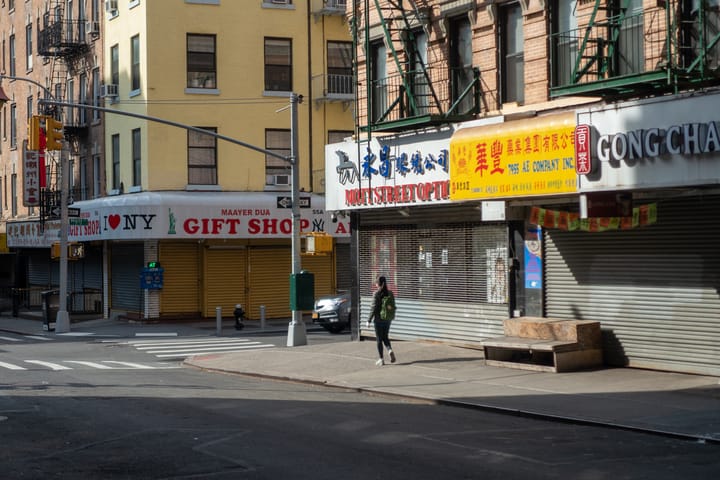Everything stops
New York, NY, USA
To be in New York right now is an eerie experience. Manhattan, always so full of noise and movement, has been suddenly stilled. The shops not already shuttered are closing down one by one. Traffic has evaporated – not vanished completely, but reduced to a fraction of its previous volume. People have withdrawn from the streets to hide in their homes, leaving the sidewalks almost but not quite empty.
You can tell that people find this sudden emptiness unnerving. During the first few days, neighbors who we know by sight but with whom we don’t normally have much interaction greeted us like long lost friends when we went out … all from a safe distance, of course. And no one’s thoughts are ever very far from the pandemic. In day-to-day interactions, ‘stay safe’ has replaced ‘have a good day’ as the go-to greeting or sign off.
Walking around – still permitted for exercise as well as essential shopping – reminds me of being in Italy during Ferragosto, the mid-summer period when the cities empty out. There is the same feeling that everyone has vanished and left the city hollowed-out and lifeless. Yet no one except the wealthy has left; everyone is still here, watching and waiting.
The streets are empty, but the parks are full. When I go running in East River Park, I have to weave around other walkers and runners. Nice days see the running track packed with people doing circuits or exercising in the grass. People move in ones and twos, keeping their distance from each other. As the days go by, more and more of them wear masks.
Friends elsewhere in the city report hearing almost constant ambulance sirens. Oddly, despite living by one of the main routes to the big hospitals in the twenties, I now hear fewer sirens than I did before. Perhaps the diminished traffic means that the ambulances can now run straight up 1st Avenue unhindered.
No one knows how long this will last. No one knows what the city will be like when it is over. Many of the most important attractions of living here are social: restaurants and bars, live music, theater and museums. Take that away, and people will begin to question their reasons for living and working here. In the end, the fate of the city depends on the nature of the virus. If it turns out to be possible to build an immunity to NCoV-SARS-2, either through a vaccine or through exposure, then New York will recover. But if not, then the age of great cities like New York may be over.
New Yorkers are a resilient bunch. At seven each evening my neighbors crowd onto their balconies or open their windows and shout and bang on things in a noisy charivari that lasts for five or ten minutes. It’s ostensibly in honor of the healthcare workers, but it’s more than that. The frequent addition of Sinatra’s “New York, New York” (never one of my favorite pieces of music, to be honest) makes it clear that it’s also a celebration of community and place. It’s a once-daily demonstration that we’re all still here, despite everything.
So maybe New York will come through after all.
